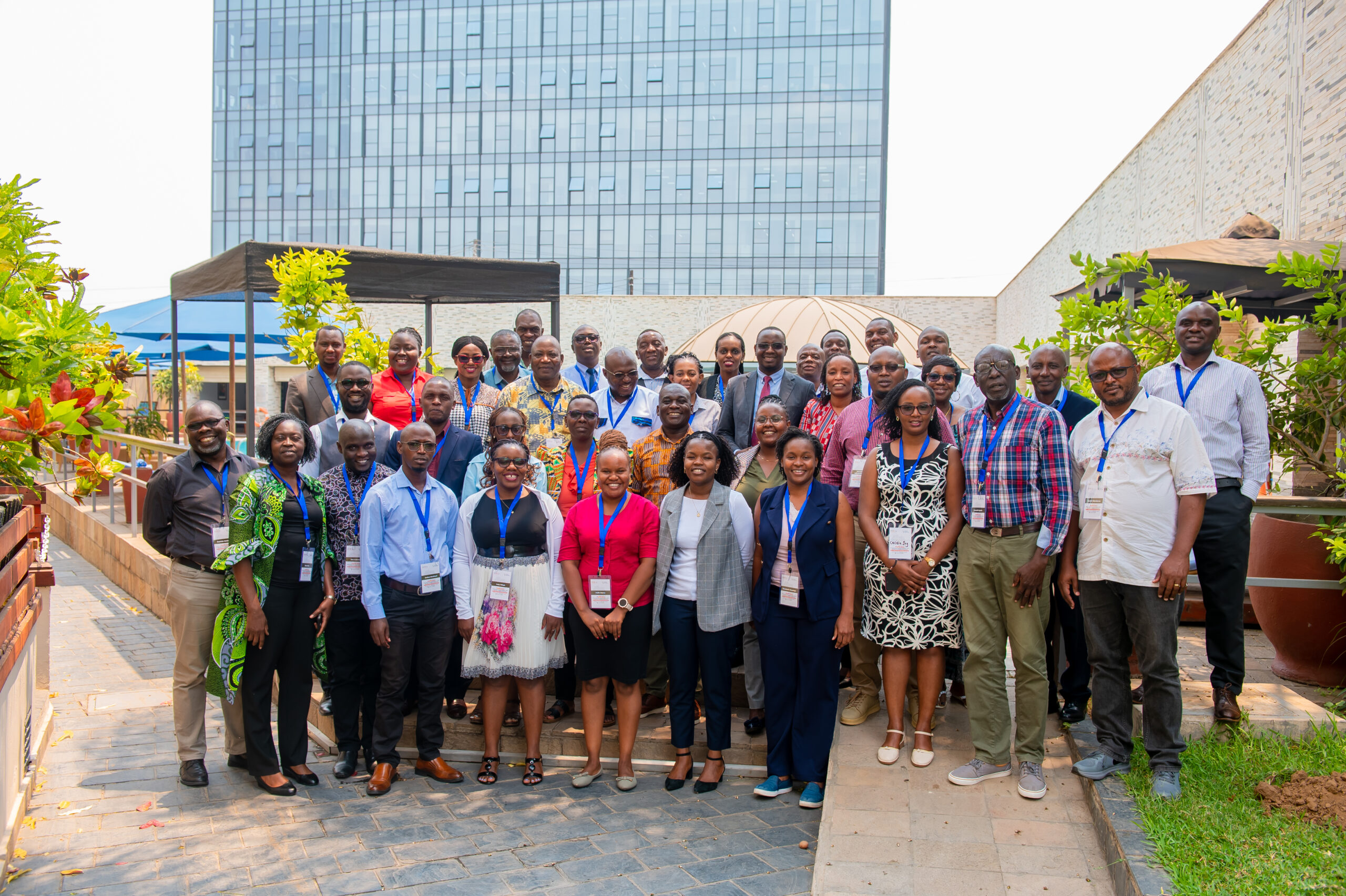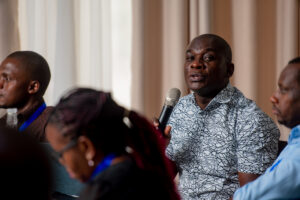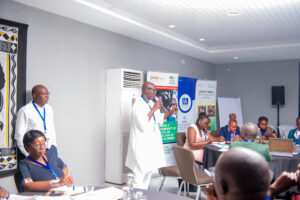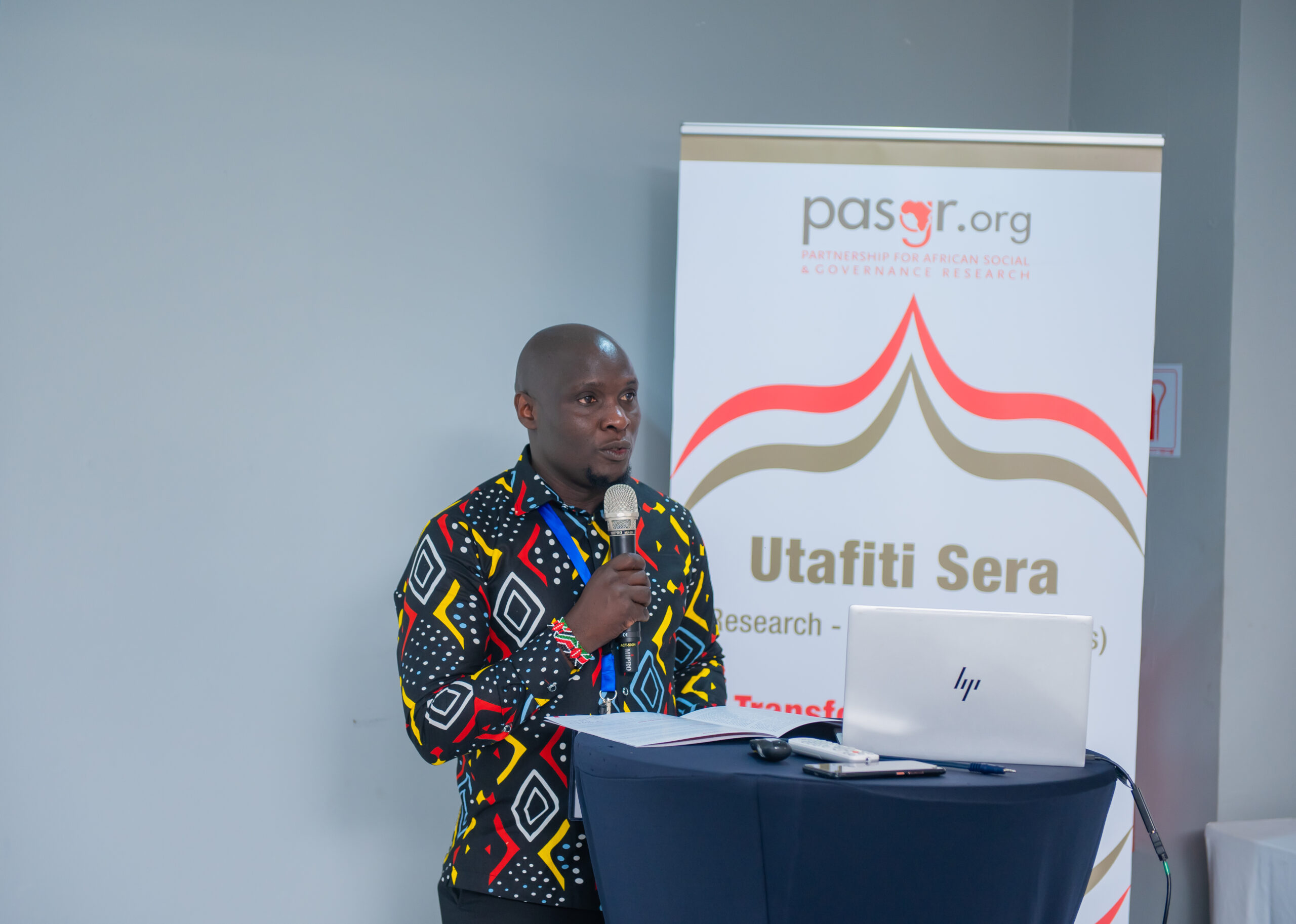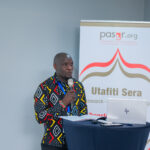By Mercy Limiri and Jim Kaketch
Africa’s public policy making landscape is rapidly evolving to adapt to the multiple interests and intricate interconnection and geopolitics. An important aspect of this rapid change is the recognition of the interconnection between evidence generation and policymaking process. While evidence use has been widely endorsed, policymaking process is still largely dominated by contested interests such as politics, ideology, cultural, and resource availability as opposed to the best available evidence. Coupled with the above interests, there is limited knowledge on the best strategies for evidence uptake in varying policy cultures and contexts in Africa.
Recognizing the importance of evidence-informed policy as well as decision making (EIDM), the Partnership for African Social and Governance Research (PASGR) and its partners have since 2015 innovated a model for bridging the gap in evidence and policy processes known as Utafiti Sera – A Swahili phrase for Research Policy, an approach developed by PASGR to create a platform for knowledge sharing and engagement on policy issues. It is a unique and pragmatic approach that supports, builds and enhances the growth of communities of practice around specific policy issues. The model allows for meaningful and equitable participation of diverse actors in the EIDM as a continuum through systematic engagements and deliberations. PASGR deploys the concept of Utafiti Sera ‘Houses’ (used as a platform, safe space, avenue) to consolidate efforts across the continent for knowledge transfer and documentation of policy cultures across diverse policy-making landscapes with the aim of understanding what does or does not work.
Against this backdrop, PASGR organized Utafiti Sera Inter-House Learning and Sharing convening from October 1 -3, 2024 in Lusaka, Zambia, to collaborate, share experiences and lessons learnt on the best strategies for policy uptake. The Convening attracted 40 participants, House leaders and key policy champions drawn from the current five Utafiti Sera Houses; Urban Governance and City Transformation House Nairobi hosted by Pamoja Trust; Urban Governance and City Transformation House Rwanda hosted by Institute of Policy Analysis and Research (IPAR-Rwanda); Youth Employment Creation House Kenya hosted by the Centre for African Bio-Enterprises (CABE); Universal Health Coverage House Zambia hosted by the Centre for Reproductive Health Education (CRHE); Africa Youth Aspiration and Resilience House hosted by PASGR in different seven African countries (Kenya, Uganda, Ethiopia, Rwanda, Nigeria, Ghana and Senegal). The convening provided a platform and opportunity for deep discussions among the house members on how evidence can effectively inform and shape responsive programming, policy and practice across the African continent.
At the heart of the three-day convening was a critical exploration of how evidence generation links with decision-making processes and institutions. The dialogue revealed that the relationship between the two is not linear; it is a dynamic, interwoven, and messy process. Often, there is a disjuncture between public policy and evidence. While evidence often forms the backbone of policy creation, in many cases, policies are developed without sufficient stakeholder engagement and not regarding contextual realities. These gaps could result in policies that are disconnected from the needs of communities or are difficult to implement effectively. The convening underscored the fact that evidence should ideally serve as a bridge between theory and practical implementation. The thought-provoking question – should policy inform practice, or should practice inform policy? – spurred compelling debates. On one hand, a well-informed policy can offer clear guidelines that lead to efficient and cohesive implementation of actions across sectors. This approach ensures uniformity and strategic alignment in addressing critical issues like health, education, and economic development. On the other hand, some argued that policy should be informed by practices, particularly those that have been proven successful and those that have been used by communities to solve their everyday problems. Contextual realities often present challenges that policies cannot predict, making it essential to inform re-evaluation of policies.
It was evident from the convening that an integrative approach, where policy and practice co-evolve was most preferred. This will ensure that the policy is informed by evidence as well as being responsive to the evolving practices and innovations in communities and sectors targeted. Policymaking that doesn’t take into account the unique challenges and opportunities in different countries or regions runs the risk of being ineffective. Similarly, Utafiti Sera as a concept, seeks to re-engage state despotism with engaging democracy, predatory capitalism with responsive enterprise, and exclusive populism with plural inclusion. This alignment ensures that policies are responsive to people’s needs.
In many instances, policies that are driven by contextual practices reveal more about the real needs of communities than top-down policy approaches. This was well captured by the success stories from the houses regarding how evidence generated over time had informed various policy processes in various sectors including the road sector, health sector, youth employment sector, and slum upgrading sector. These practices can offer invaluable insights for future policy development, showing that flexible and adaptive policy frameworks that respond to practice are crucial.
Additionally, the rapidly growing tech sector provides another powerful example. Innovations in mobile banking, e-learning, and digital health solutions have emerged from practice rather than policy. The Muslim banking system was highlighted as a good example of how practice influenced policy. These innovations often lead to the creation or revision of policies designed to regulate and support emerging sectors.
The Utafiti Sera Inter-House convening also highlighted the importance of diverse sources of evidence, including tacit knowledge which encompasses social, scientific, and professional knowledge systems, in addition to research-based insights. Collaboration between researchers, policymakers, and practitioners is essential for crafting solutions for the continent’s most pressing challenges. The convening concluded that in designing a policy, actors should consider policy issues from different angles, including looking at what existed before, critical stakeholders the actors above and below, conceptualizing people as the locus of negotiation, considering contributing factors, and ultimately, linking the issue to the future. The ongoing dialogue on whether policy or practice should lead the way is important, but the real takeaway is that both must be interwoven.
Africa’s development will benefit from a symbiotic relationship between evidence generation and policy formulation. This requires strengthening institutions that can analyse, interpret, and integrate evidence into policy, while fostering a culture of flexibility in policies to adapt to evolving practices. Such an approach will ensure that Africa’s policies are not just aspirational but also actionable, rooted in real-world challenges, and attuned to the continent’s dynamic social and economic landscapes. The Utafiti Sera Inter-House Learning and Sharing Convening in Lusaka was a vital step toward building stronger linkages between policy, practice, and evidence.
